How to treat mental health with maca
Mild – Moderate Symptoms
Take 1-1.5 tsp or 3-5 capsules per day of Maca for Women or Maca for Men with breakfast or lunch. Minimum suggested treatment time is 6-12 weeks. Beyond this you may continue to consume maca daily and do not require taking a break from treatment if you are receiving positive benefits. For recipe ideas of how to include maca in your daily routine download our recipe booklet here or watch our recipe channel here.
For Women
1-1.5 tsp daily
For Women
3-5 capsules daily
For Men
1-1.5 tsp daily
For Men
3-5 capsules daily
Take Red Maca daily to manage symptoms of:
- Exhaustion
- Anxiety
- Palpitations
- Mood Swings
- Sugar Cravings
- Restlessness
- Pensiveness (overthinking)
- Tinnitus
- Addiction
- Poor Sleep
- Excessive talking
Take Black Maca daily to manage symptoms of:
- Tiredness
- Depression
- Lack of Motivation
- Trouble concentrating
- Muscular Tension
- Headaches and Migraine
- Brain Fog
- Frustration
- Muscle Weakness
- Shortness of Breath
- Poor motor neuron function
1 tsp daily
1 tsp daily
Treating mental health with maca
Mental health issues such as anxiety, depression, bipolar, and impulse control disorders affect a large portion of people across the globe and are a major concern in public health.
In the European Union, approximately 165 million people are affected by psychological issues each year, which is approximately 38% of the population1, 2. In the United States, are more prevalent in women3. World Health Organization Surveys demonstrated significant barriers to seeking treatment for mental health disorders due to perspectives and attitudes of those suffering4. We want you to know that you are not alone and there are people out there to assist, please visit Depression.org.nz to learn more. Mental health issues can come in all shapes and sizes so understanding your condition is essential to knowing what you can do to better manage it.
Anxiety
When stress gets out of hand, anxiety disorders often manifest physical (somatic) symptoms and the following debilitating mental health symptoms:
For more days than not over a six month period;
- Excessive worrying or apprehension about several of events or activities
- Difficulty managing the worrying
- Three or more:
- Restlessness or on edge
- Easily fatigued
- Irritability
- Body tension
- Sleeping problems
- Can also be associated with panic attacks and other severe symptoms
Depression
Major depressive episodes are the most prevalent lifetime mental health syndrome, affecting 16.6% of the United States population. Within this group, about 10% experience a single episode, and 12% of those with recurring episodes3. According to the Diagnostic Statistical Manual 5 (DSM-5), depression is characterised with a depressed mood or loss in pleasure for over two weeks with:
- Feeling down almost every day for two weeks or more
- Notably loss of enjoyment in almost all activities during this time
- Significant weight changes absentmindedly
- Other people notice that you are slowing down in movement or thinking
- Almost constant fatigue
- Recurrent thoughts of self-harm
Bipolar Disorder
Bipolar disorder describes a variety of types and experiences altering between manic, hypomanic, and depressive moods characterised as follows:
Manic episodes
- increased rate of speech and feeling pressured to talk
- Notably over-inflated ideas of abilities or self-esteem
- Reduced need for sleep
- Racing thoughts
- Easily distracted
- Restlessness and agitation
- Risky behaviours
Hypomanic episodes have overlapping characteristics with manic episodes, and may also include:
- Reckless spending
- Flamboyant behaviour
- Talking noticeably fast
- Jumping between random topics in conversation
Depressive episodes
- Include symptoms of depression
- Insomnia or hypersomnia almost every day
- Excessive feelings of worthlessness or doubt
Attention-Deficit/Hyperactivity Disorder (ADHD)
Adults will frequently experience five or more indications of inattention and hyperactivity that impairs daily life for over six months in multiple settings. These adults will often manifest these symptoms before the 12 years old according to the DSM-5. The symptoms of ADHD include:
Inattention
- Carelessness: making mistakes and lacking attention detail
- Difficulty concentrating
- Does not listen to direct communications
- Lack of follow-through
- Poor organisation
- Avoids or dislikes tasks with sustained mental effort
- Loses necessary items
- Easily distracted
- Generally forgetful
Hyperactivity/impulsion
- Fidgets
- Leaves conversations randomly
- Restless
- Has trouble with calm activities
- Always on the go
- Talks excessively
- Bursts out comments
- Difficulty waiting
- Interrupts or intrudes on others
Many people suffering mental health disorders, as well as those subthreshold, often seek complementary or alternative medicines to treat their symptoms5. Studies indicate cognitive and psychological improvement with maca, a traditional medicinal root vegetable found in the Peruvian Andes. Traditionally maca has been used in Peru to improve mental health and well-being for centuries. Known locally as the ‘food of the brain’ the Incan people use maca as a tonic for brain and cognitive function. They say that when you consume her (maca) regularly she builds strength and resilience to stress in your brain and creates more clarity in thoughts. Children are also fed maca to help with brain and cognitive development especially whilst learning at school and beyond.
How maca works to treat mental health
Maca’s therapeutic components include macamides6 that act to regulate brain function via the endocannabinoid system and other active ingredients that demonstrate neuroprotective actions7. By activating cannabinoid type-2 receptors, maca biochemical compounds such as their n-alkylamides also have been demonstrated to positively improve psychological symptoms8,9. These compounds and others found in maca also act to simultaneously relieve physical fatigue10,11,12,13, a symptom of many psychological disorders. Maca was shown to preserve cognitive function in a clinical model15, which may indicate concentration improvement for ADHD patients. After treatment with maca, an anxiety laboratory model showed antidepressant-like effects on behavioural, anatomical, and biochemical levels16.
In traditional medicine, synthetic antidepressants sometimes result in sexual dysfunction. In women, maca alleviated this side effect in a double-blind placebo-controlled study17. In men, maca extract moderately improved well-being and sexual performance in patients with mild sexual dysfunction18. These beneficial effects are not due to estrogen or androgen as maca works independently of sex hormones19.
Maca has three different variants described by the colour of the root: yellow, red, and black. All varieties showed antidepressant activity in studies on learning and depression20. Laboratory studies primarily test yellow maca, although psychological symptoms benefit from treatment with all types of maca. In addition to the benefits of yellow maca described above, black maca improved memory impairment in scopolamine-treated mice, restoring acetylcholinesterase (AChE) without affecting monoamine oxidase (MAO)21. Black maca demonstrated more beneficial effects than yellow and red maca on learning in a post-menopause mouse model, although all varieties positively affected mood21.
Our treatment approach is to use all three types of maca for men and women suffering from mental health symptoms. Yellow maca improves mental health overall, while red maca is more calming, and black maca is more uplifting according to traditional use. Own own experience shows that the use of 3-coloured combinations can help bring harmony back to brain function, while high dose extracts of red offer a more calming effect (ideal for anxiety) and high-dose black extracts improve brain and cognitive function (ideal for depression).
Customer Testimonials for our Maca and Mental Health
NO MORE FATIGUE AND ANXIETY
I loved the presentation and it's been well over a month, my extreme fatigue and anxiety that was making every day a challenge is gone. I'm so thankful I discovered my daily companion chocolate maca. I thought I would rush back to martial arts & my physical pursuits if I ever got energy again but I'm learning to be more mindful & just enjoy what I have - I feel like I have a second chance at life. Grateful - many thanks

THIS MACA POWDER HAS TOTALLY CHANGED MY LIFE
This powder has totally changed my life! It helped me get off antidepressants, balanced my hormones, helps hugely with anxiety & depression, I’m living free, but it is about the holistic approach.

DRASTIC IMPROVEMENT TO MY WELLBEING
I suffered from dark and gruelling treatment resistant depression in the past and all the things I tried never made a huge impact and in the process had long lasting residual effects from benzo addiction. Eventually from lifestyle choices and changing life habits with hard work I lifted myself out of depression for a long time without any luck of completely having my will to live fully return. I also had issues with residual effects from my addiction and it affected my motivation, fatigue levels and charisma. When I stumbled across seleno health and their maca my life started to shape in the way i really desired. It took probably 7 weeks for me of continued dosing of maca daily until i felt a difference in myself but it made a drastic difference. My Energy levels increased, focus improved, my will to live was fully revitalised, and my charisma and confidence came back from always feeling blissful. I continue to take it daily after 3 months and i keep seeing my results are always improving.

Note: There is no upper limit with maca and everybody is different, so it is important to find your ideal dose that is right for your body, for some this may be less than the recommended for others it may be more. If you experience positive health benefits then we suggest you continue treatment at that ideal dosage. The material provided on this website is for information purposes only. It is not intended to replace medical advice or be a treatment for any medical condition. Users should consult a health professional if you have any concerns about your health, are starting any health or nutritional related treatment, or for any questions you may have regarding your own or any other party’s medical condition. Information and statements regarding dietary supplements have not been evaluated by the Food and Drug Administration and are not intended to diagnose, treat, cure, or prevent any disease.
Bibliography
1. Trautmann, S., Rehm, J., & Wittchen, H. U. (2016). The economic costs of mental disorders. EMBO reports, 17(9), 1245-1249. https://www.ncbi.nlm.nih.gov/pubmed/27491723
2. Wittchen, H.U., Jacobi, F., Rehm, J., Gustavsson, A., Svensson, M., Jönsson, B., Olesen, J., Allgulander, C., Alonso, J., Faravelli, C.L.F.P.J. and Fratiglioni, L., 2011. The size and burden of mental disorders and other disorders of the brain in Europe 2010. European neuropsychopharmacology, 21(9), 655-679. https://www.ncbi.nlm.nih.gov/pubmed/21896369
3. Kessler, R. C., Petukhova, M., Sampson, N. A., Zaslavsky, A. M., & Wittchen, H. U. (2012). Twelve‐month and lifetime prevalence and lifetime morbid risk of anxiety and mood disorders in the United States. International journal of methods in psychiatric research, 21(3), 169-184. https://www.ncbi.nlm.nih.gov/pubmed/22865617
4. Andrade, L.H., Alonso, J., Mneimneh, Z., Wells, J.E., Al-Hamzawi, A., Borges, G., Bromet, E., Bruffaerts, R., De Girolamo, G., De Graaf, R. and Florescu, S., 2014. Barriers to mental health treatment: results from the WHO World Mental Health surveys. Psychological medicine, 44(6), pp.1303-1317.
5. Gureje, O., Nortje, G., Makanjuola, V., Oladeji, B. D., Seedat, S., & Jenkins, R. (2015). The role of global traditional and complementary systems of medicine in the treatment of mental health disorders. The Lancet Psychiatry, 2(2), 168-177. https://www.ncbi.nlm.nih.gov/pubmed/26359753
6. Muhammad, I., Zhao, J.P., Dunbara, D.C., Khan, I.A., 2002. Constituents of Lepidium meyenii ‘maca’. Phytochemistry 59, 105–110. https://www.ncbi.nlm.nih.gov/pubmed/11754952
7. Zhou, Y., Li, P., Brantner, A., Wang, H., Shu, X., Yang, J., Si, N., Han, L., Zhao, H. and Bian, B., 2017. Chemical profiling analysis of Maca using UHPLC-ESI-Orbitrap MS coupled with UHPLC-ESI-QqQ MS and the neuroprotective study on its active ingredients. Scientific reports, 7, p.44660. https://www.ncbi.nlm.nih.gov/pubmed/28304399
8. Gertsch, J., Raduner, S., & Altmann, K. H. (2006). New natural noncannabinoid ligands for cannabinoid type-2 (CB2) receptors. Journal of Receptors and Signal Transduction, 26(5-6), 709-730. https://www.ncbi.nlm.nih.gov/pubmed/17118807
9. Hajdu, Z., Nicolussi, S., Rau, M., Lorántfy, L., Forgo, P., Hohmann, J., Csupor, D. and Gertsch, J., 2014. Identification of endocannabinoid system-modulating N-alkylamides from Heliopsis helianthoides var. scabra and Lepidium meyenii. Journal of natural products, 77(7), 1663-1669. https://www.ncbi.nlm.nih.gov/pubmed/24972328
10. Zheng, Y., Zhang, W.C., Wu, Z.Y., Fu, C.X., Hui, A.L., Gao, H., Chen, P.P., Du, B. and Zhang, H.W., 2019. Two macamide extracts relieve physical fatigue by attenuating muscle damage in mice. Journal of the science of food and agriculture, 99(3), 1405-1412. https://www.ncbi.nlm.nih.gov/pubmed/30120787
11. Tang, W., Jin, L., Xie, L., Huang, J., Wang, N., Chu, B., Dai, X., Liu, Y., Wang, R. and Zhang, Y., 2017. Structural characterization and antifatigue effect in vivo of maca (Lepidium meyenii Walp) polysaccharide. Journal of food science, 82(3), pp.757-764. https://www.ncbi.nlm.nih.gov/pubmed/28231388
12. Li, J., et al., Anti-fatigue activity of polysaccharide fractions from Lepidium meyenii Walp. (maca). Int J Biol Macromol, 2017. 95: p. 1305-1311. https://www.ncbi.nlm.nih.gov/pubmed/27840217
13. Choi, E.H., et al., Supplementation of standardized lipid-soluble extract from maca (Lepidium meyenii) increases swimming endurance capacity in rats. Journal of Functional Foods, 2012. 4(2): p. 568-573. http://www.sciencedirect.com/science/article/pii/S1756464612000436
14. Lin Zheng, B., et al., Effect of Aqueous Extract from Lepidium meyenii on Mouse Behavior in Forced Swimming Test. 2001. p. 258-268. https://pubs.acs.org/doi/abs/10.1021/bk-2002-0803.ch018
15. Guo, S.-S., et al., Preservation of Cognitive Function by Lepidium meyenii (Maca) Is Associated with Improvement of Mitochondrial Activity and Upregulation of Autophagy-Related Proteins in Middle-Aged Mouse Cortex. Evidence-Based Complementary and Alternative Medicine, 2016. 2016: p. 9. https://www.ncbi.nlm.nih.gov/pubmed/27648102
16. Ai, Z., et al., Antidepressant-like behavioral, anatomical, and biochemical effects of petroleum ether extract from maca (Lepidium meyenii) in mice exposed to chronic unpredictable mild stress. Journal of medicinal food, 2014. 17(5): p. 535-542. https://www.ncbi.nlm.nih.gov/pubmed/24730393
17. Dording, C. M., Schettler, P. J., Dalton, E. D., Parkin, S. R., Walker, R. S., Fehling, K. B., … & Mischoulon, D. (2015). A double-blind placebo-controlled trial of maca root as treatment for antidepressant-induced sexual dysfunction in women. Evidence-Based Complementary and Alternative Medicine, 2015. https://www.ncbi.nlm.nih.gov/pubmed/25954318
18. Zenico, T., Cicero, A. F. G., Valmorri, L., Mercuriali, M., & Bercovich, E. (2009). Subjective effects of Lepidium meyenii (Maca) extract on well‐being and sexual performances in patients with mild erectile dysfunction: a randomised, double‐blind clinical trial. Andrologia, 41(2), 95-99. https://www.ncbi.nlm.nih.gov/pubmed/19260845
19. Brooks, N. A., Wilcox, G., Walker, K. Z., Ashton, J. F., Cox, M. B., & Stojanovska, L. (2008). Beneficial effects of Lepidium meyenii (Maca) on psychological symptoms and measures of sexual dysfunction in postmenopausal women are not related to estrogen or androgen content. Menopause, 15(6), 1157-1162. https://www.ncbi.nlm.nih.gov/pubmed/18784609
20. Rubio, J., Caldas, M., Dávila, S., Gasco, M., & Gonzales, G. F. (2006). Effect of three different cultivars of Lepidium meyenii (Maca) on learning and depression in ovariectomized mice. BMC complementary and alternative medicine, 6, 23. https://www.ncbi.nlm.nih.gov/pubmed/16796734
21. Rubio, J., et al., Aqueous Extract of Black Maca (Lepidium meyenii) on Memory Impairment Induced by Ovariectomy in Mice. Evidence-based complementary and alternative medicine : eCAM, 2011. 2011: p. 253958-253958. https://www.ncbi.nlm.nih.gov/pubmed/18955369


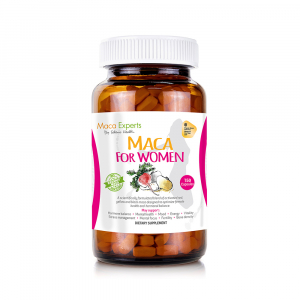

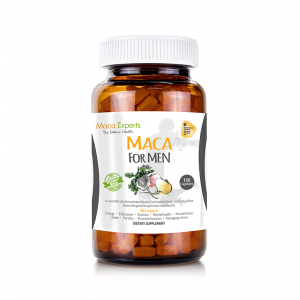
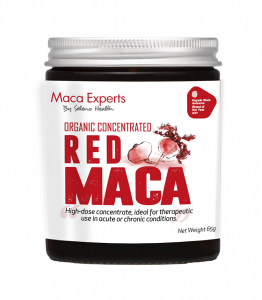
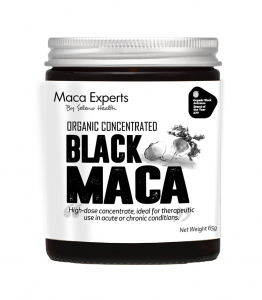







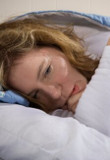

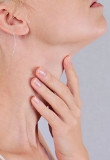





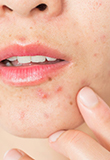

Leave a Reply
Want to join the discussion?Feel free to contribute!